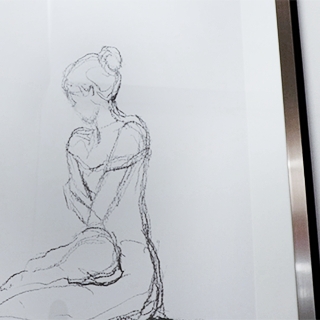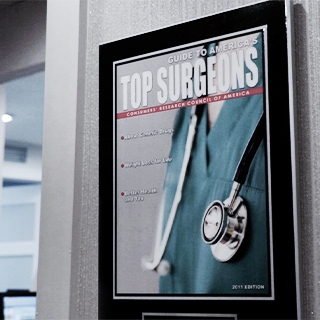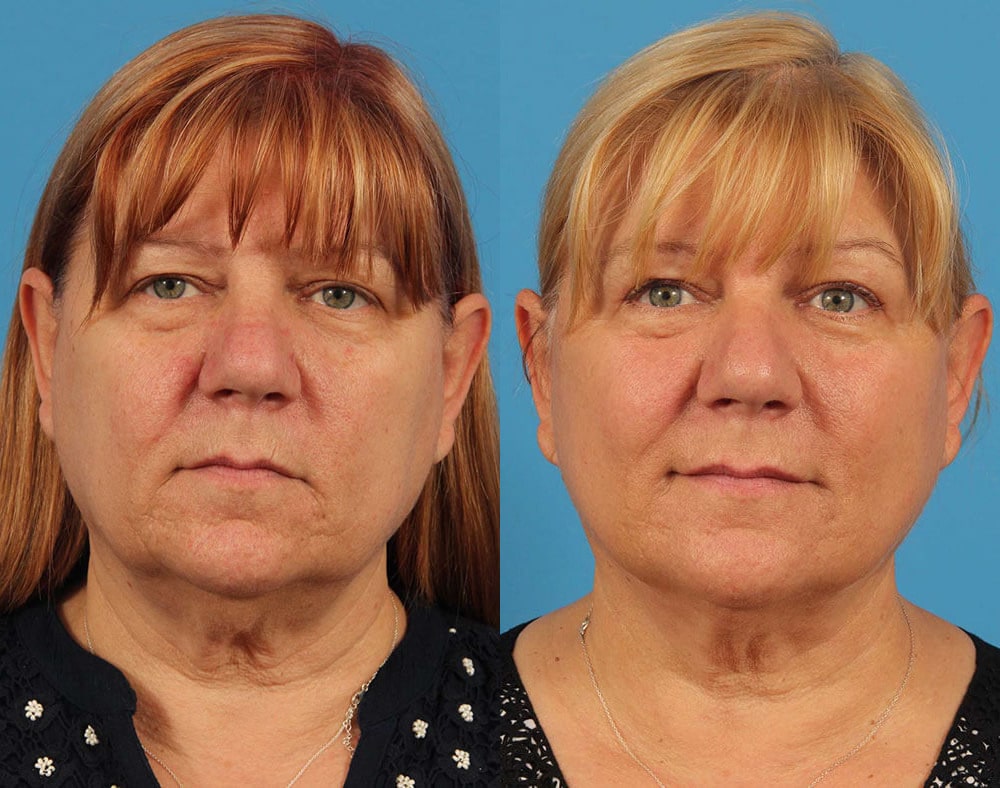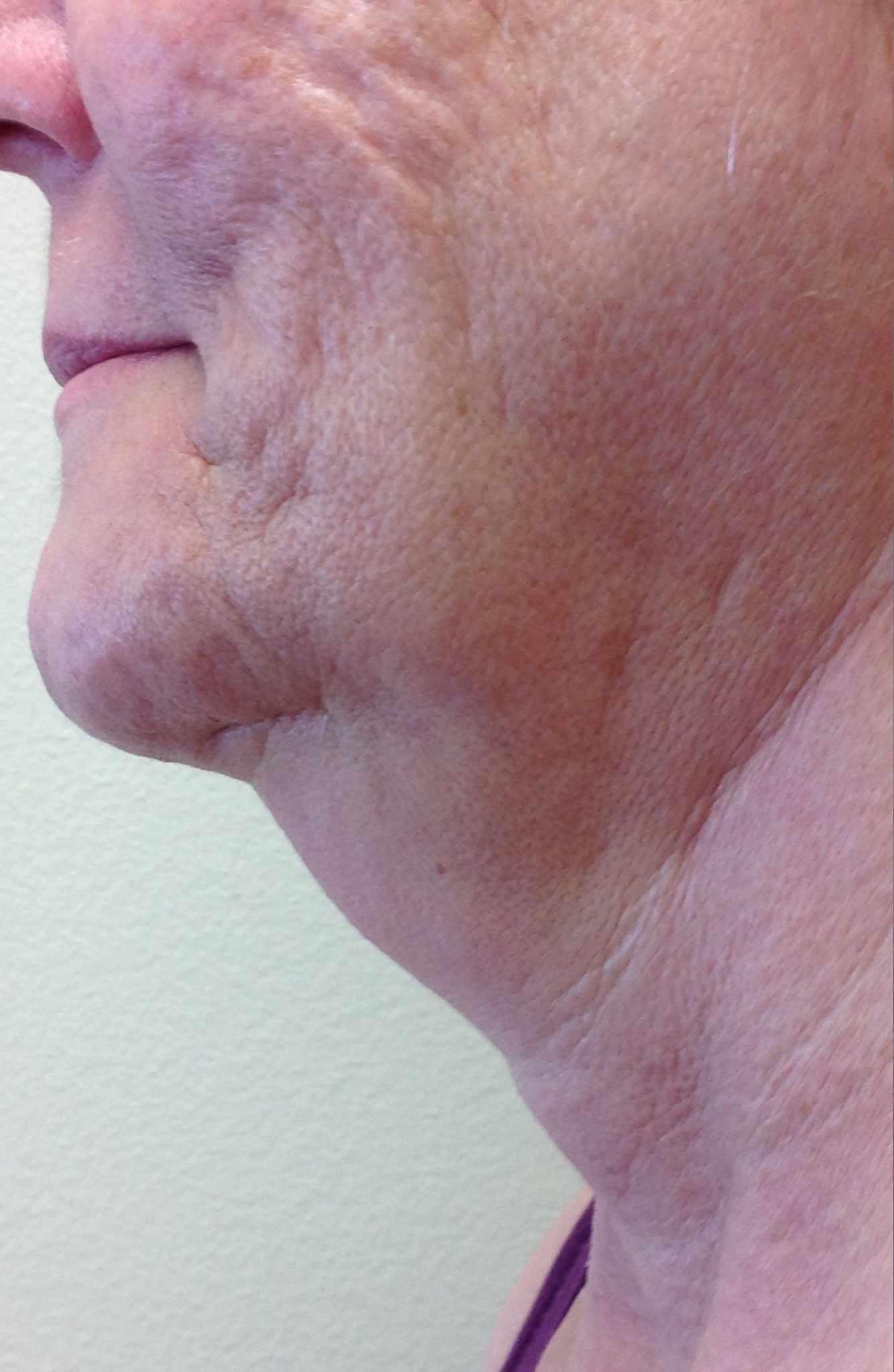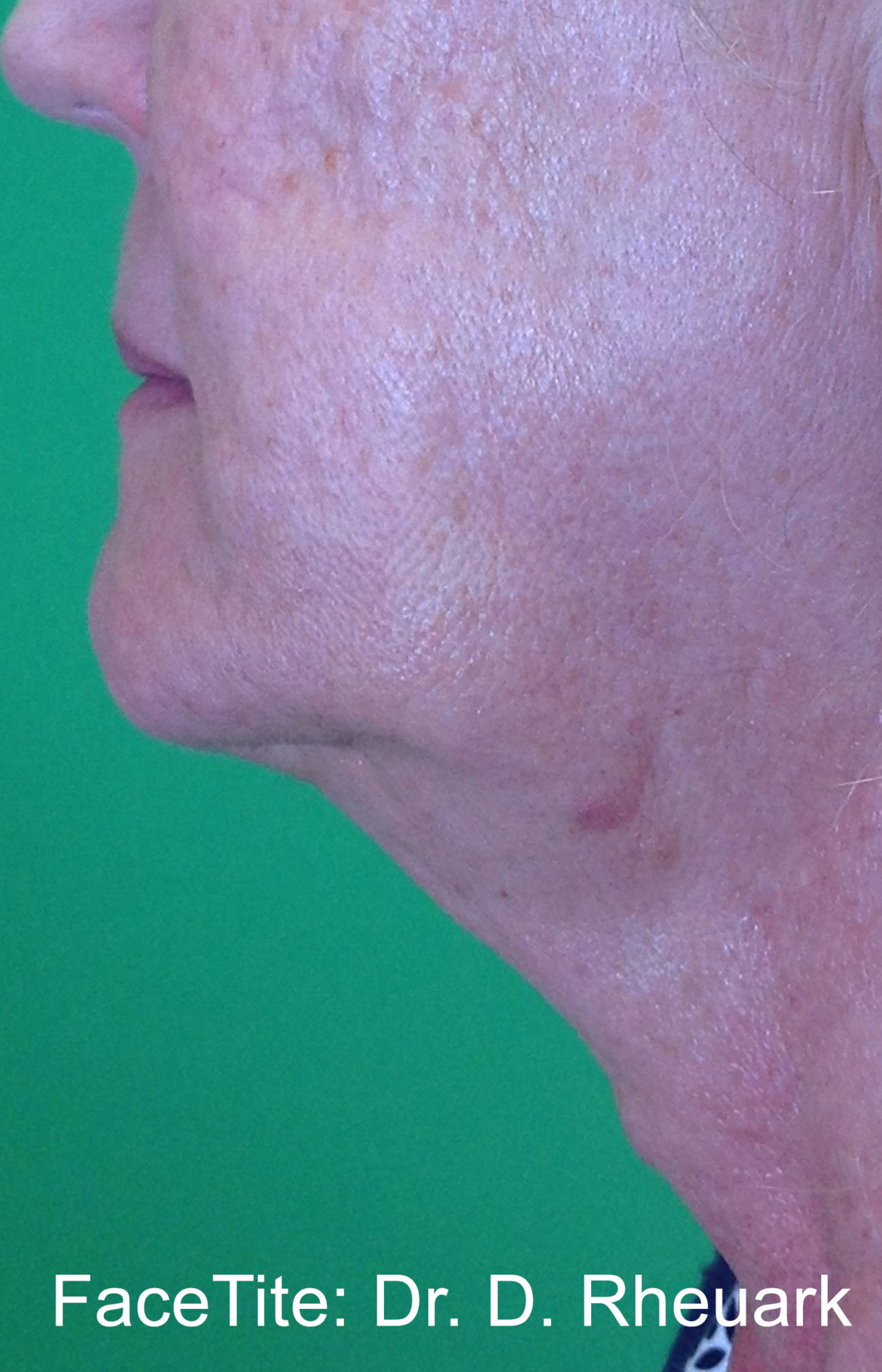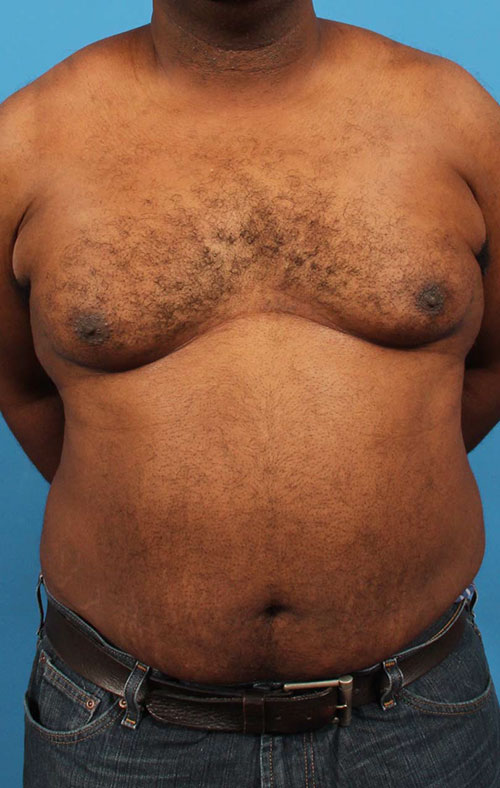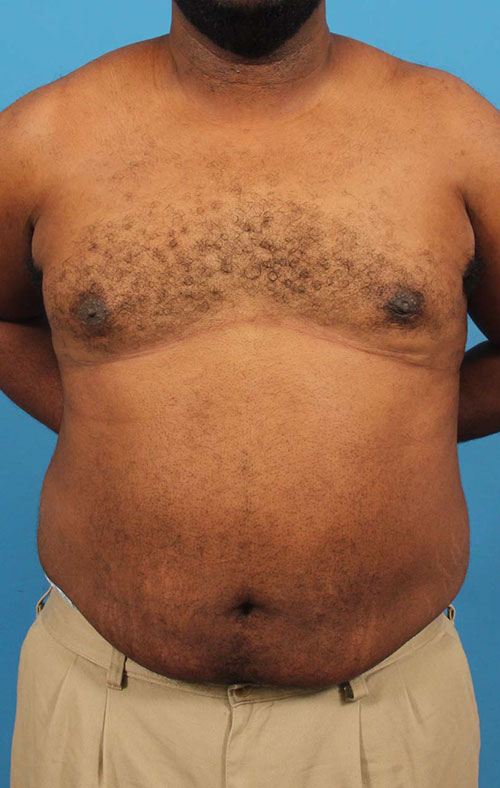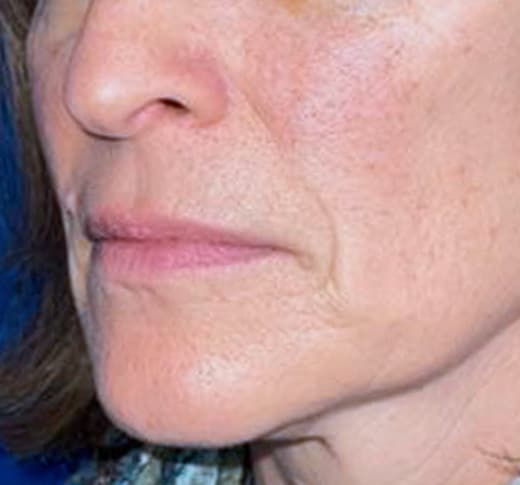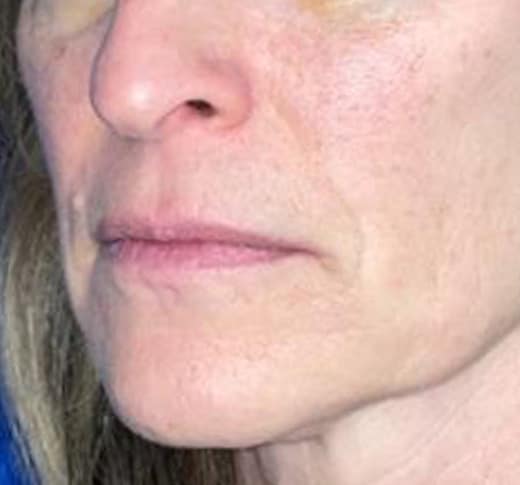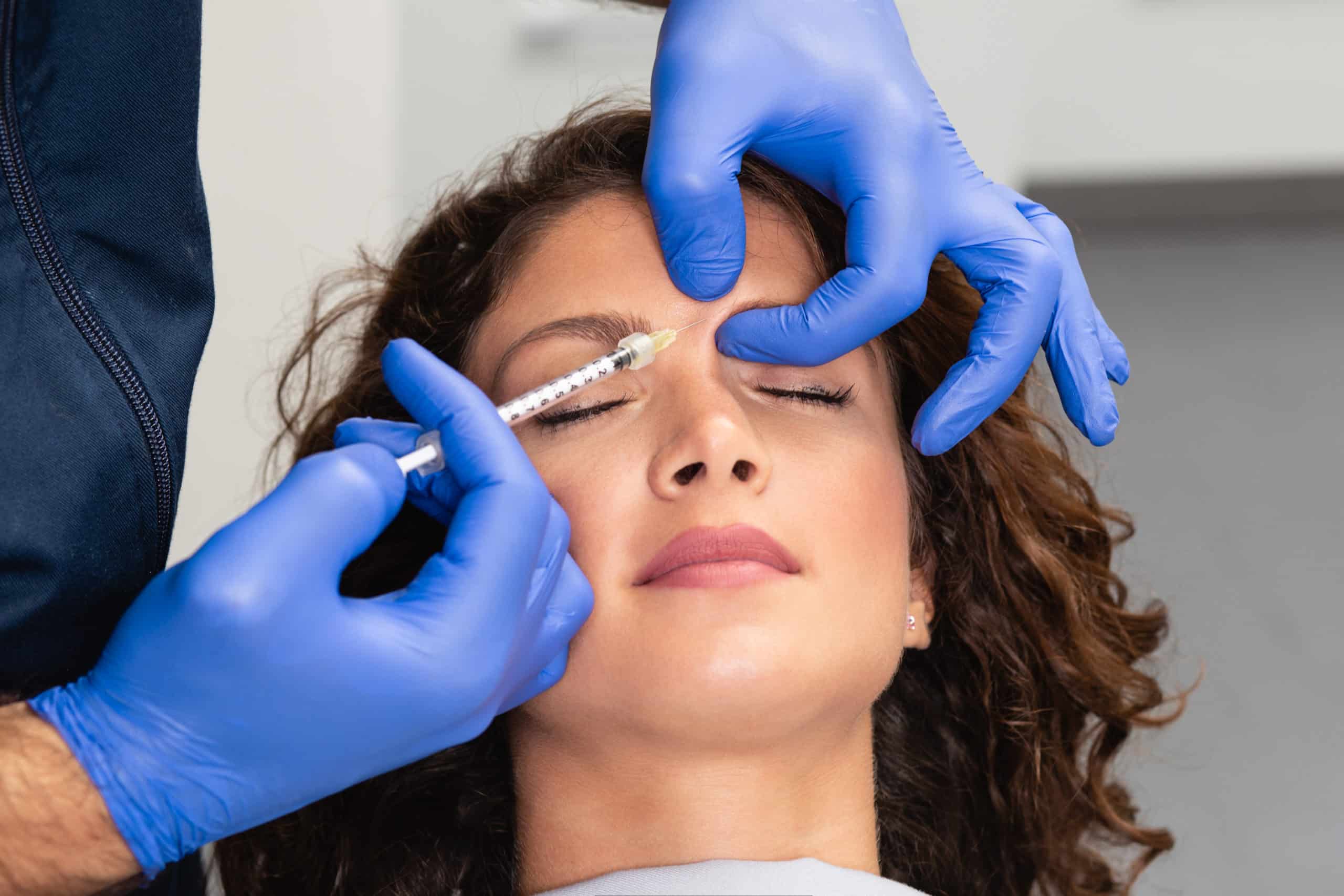For directions to our Operative Facilities please click here.
The Cary office is conveniently located at:
2001 Weston Parkway
Cary, NC 27513
From Durham, Chapel Hill, and Wake Forest:
- Highway I-40 to Cary, exit 287 for Harrison Avenue
- Use the right 2 lanes to turn right onto N Harrison Ave (signs for Sas Campus Drive)
- Turn right toward Weston Parkway
- Make a U-turn at Southhill Dr and our office will be on the right
From Raleigh:
- Highway I-40 to Cary, exit 287 for Harrison Avenue
- Use the left 2 lanes to turn left onto N Harrison Ave (signs for Weston)
- Turn right toward Weston Parkway
- Make a U-turn at Southhill Dr and our office will be on the right
Frequently Asked Questions
Can breast implants cause pain years later?
One risk of breast implants is the development of capsular contracture. Capsular contracture is the hardening of the thin scar tissue that surrounds the implant. In moderate to severe cases, capsular contracture can cause a tightness, firmness, or painful feeling in one or both breasts. Treatment options for capsular contracture include medical management with medications and possible implant removal and/or exchange. At CARE Plastic Surgery, we take every measure to reduce the overall risk of capsular contracture. We are proud to say that Dr. Coan's rate is about one-third of the national average.
Can breast implants last 30 years?
Yes, with today's silicone implant technology, breast implants can last decades. At CARE Plastic Surgery, we offer Allergan Natrelle silicone implants that include a lifetime warranty. At 10 years after implantation, the rate of implant leaks and/or ruptures is considerably low at about 6%. We recommend patients receive MRIs to evaluate the integrity of the implant, as this is the only way to detect a leak or rupture in a silicone implant.
Can fat be transferred to breasts?
Yes, you can augment the breast with use of an implant or fat grafting. At CARE Plastic Surgery, we offer a variety of surgical procedures, including fat transfer to the breasts. Depending on your desired aesthetic goals, our double-board certified plastic surgeon may recommend utilizing a breast implant or fat grafting to the breasts. Oftentimes, fat transfer can achieve a more natural aesthetic and may be a suitable option for patients seeking minimal volume increase.
How do I know if my breast implant is leaking?
It is fairly easy to detect a leak in saline implants. Patients will notice a physical change in the appearance of the implant as it subsequently deflates. Although the leak rate is relatively low, the only way to detect a leak in a silicone implant is with an MRI.
How painful is breast augmentation recovery?
While every patient is unique, many patients commonly describe the post-operative experience as sore rather than painful. The majority of patients find comfort after surgery when following the recommended pain management and medication regimen. Many patients at CARE Plastic Surgery report feeling back to their “normal selves” within a week. Most patients only take pain medicine for 2-3 days. The vast majority of our patients only take non-steroidal anti-inflammatories after the first day.
What is the difference between a breast augmentation and breast implants?
Breast augmentation is any procedure that serves to increase the size of the breast. A breast can be enlarged by means of fat transfer or a breast implant device.
What is capsular contracture?
Capsular contracture is a rare but serious risk associated with breast augmentation surgery. After surgery, a thin layer of internal scar tissue forms around the implant. In capsular contracture, the scar tissue thickens and hardens, leading to a conformational change of the breast. In addition to a shape change, the breast can feel tight and/or painful. Treatment involves implant removal and/or exchange, and the procedure may require a capsulectomy.
What activities can you not do with breast implants?
Our patients are instructed to avoid exercise and any activity that will increase heart rate or blood pressure for 6 weeks following surgery. At 6 weeks, our patients are cleared to resume any and all activities. We want our patients to “forget” they had surgery and enjoy their lives and new bodies! We often tell our patients with military background that they can jump out of a plane if they desire.
Is a breast augmentation covered by Insurance?
Most breast augmentations are considered cosmetic procedures, which are often not covered under insurance. At CARE Plastic Surgery, we are out-of-network with all insurance companies.
Can I move my arms after breast augmentation?
You will be able to move your arms after breast augmentation surgery. Depending on the patient, we may recommend avoiding certain movements, such as raising your arms above your head, for a short period of time after your procedure. We discourage patients from lifting anything exceeding 20 pounds, or participating in any activity causing an increase of heart rate and blood pressure for approximately 6 weeks after surgery.
Does getting breast implants make you gain weight?
Technically, minimal weight gain is to be expected when getting breast implants, but it will not be noticeable, nor should it have an impact on your decision to go through with breast implants.
Is there an alternative to breast implants?
Yes, an alternative way to enlarge the breasts would be through liposuction and fat transfer. This is a great option for patients wanting a more natural appearance.
Do you use saline or silicone implants?
At CARE, we offer all types of implants but recommend Allergans Natrelle silicone gel implants. The Natrelle breast implants are considered to be the gold standard for many reasons, including a lifetime replacement warranty and a ten-year implant replacement warranty on capsular contracture. Most patients appreciate the substantial advantages of these implants over the small cost differential associated with the less expensive saline implants.
What is the risk of capsular contracture?
The national average risk of developing capsular contracture after a breast augmentation is around 10-12%. At CARE Plastic Surgery, our rate is around 3-4%. Dr. Coan performs every measure possible to mitigate this incidental risk including often placing the implant under the muscle and often using a Keller Funnell to mitigate implant contamination.
What happens at my initial consultation?
At your initial consultation, you will meet face-to-face with our double-board certified plastic surgeon, Dr. Brian Coan. He enjoys spending time getting to know you as an individual, discussing your lifestyle, aesthetic goals, and questions/concerns. After performing a brief examination, he will provide his expert recommendations based on your anatomy and goals. You will then participate in a sizing session, allowing you to physically try on various implants to see what volume range you like on your frame. Our patients really enjoy this part of the consultation, and oftentimes they try on fitted shirts and take selfies!
How long does a breast augmentation take?
Breast augmentation is considered an outpatient procedure. The actual procedure time takes about 45 minutes, depending on if other procedures are being performed at the same time (i.e. breast lift, nipple reduction, etc.). This does not include total prep and anesthesia time. Patients and their caregivers can expect to be at the office about 2-2.5 hours from start to finish.
Are breast implants under warranty?
Breast implant warranties vary depending on the company or manufacturer. In general, there is a 10 year warranty against implant leaking or rupture. This is a fairly low occurring event, at approximately 6% at 10 years. If it occurs, the implants are replaced, and the company covers a portion of the surgical costs. If the implants leak or fail after 10 years, although the surgical costs are not covered, the cost of replacement implants are covered for life. In the event a patient develops capsular contracture (a formation of excess scar tissue around the implant), surgical costs are not covered, but replacement implants are covered if it occurs within the first 3 years.
Can you prevent capsular contracture?
There are certain measures that can be taken to ensure the lowest risk of capsular contracture. Some factors are patient-dependent and can increase the risk, such as frequent UTIs, sinus infections, and recurrent dental problems. At CARE, we implement all the best practices to minimize your overall risk of capsular contracture. Dr. Coan uses silicone implants placed below the muscle using an incision at the infra-mammary fold unless otherwise indicated.
What are the restrictions after breast augmentation?
During the first two weeks after surgery, we advise patients to take it easy to avoid complications, such as bleeding or bruising. Additionally, we encourage patients to sleep in a relined position during this time to help with overall swelling. We instruct our patients to avoid exercise and any activities that will increase heart rate or blood pressure for 6 weeks following surgery. This includes no pushing, pulling, or lifting objects over 20 lbs. Also, patient should avoid baths or swimming until all incisions are healed (typically around 6-weeks post-op).
Do you have to wear a bra 24/7 after breast augmentation?
We recommend our patients wear a compression bra for 6 weeks after surgery, including while sleeping at night. Patients may take it off for showering, laundering, and breast massage.
Can you breast feed after breast augmentation
There is no proven evidence indicating an implant would significantly impact a woman's breastfeeding ability. Relevant factors that can impact a woman's ability to breastfeed include the amount of existing breast tissue, age, and genetics.
Do breast implants cause autoimmune disease?
There is no direct evidence supporting that silicone implants are a causal factor for autoimmune disorders. While patients may develop autoimmune disorders over the course of their lifetime, along with other disorders or conditions, there is no clinical data indicating silicone implants cause autoimmune disease. The breast implant is considered one of the most clinically studied medical devices on the market.
Do breasts sag after breast augmentation?
Breast implants serve to solely make an ideal-shaped breast larger. Implants do not address nipple position or breast shape. Implants are not “anti-gravity” devices, meaning breasts with implants will continue to age similarly to large breasts without implants. Implant position can be influenced by weight fluctuations, pregnancy, hormonal changes, and more. Our double-board certified surgeon, Dr. Coan, will help you decide if a breast lift is right for you prior to surgery.
Do you have to replace breast implants every 10 years?
Some people may mistakenly compare medical breast implants to car tires, and believe they need to be “rotated” or changed periodically. Many breast implant manufacturers offer a breast implant warranty and the Natrelle brand breast implants for silicone gel offer a lifetime replacement warranty and a 10-year warranty on capsular contracture. Silicone gel breast implants that are FDA approved are designed to serve as lifetime medical devices. It is common for many patients to enjoy their implants for 15-20 years or more with proper maintenance. Patients may decide to replace their implants for many reasons, including ruptures, after breastfeeding or changes in aesthetic desires. Because implants are not an “anti-gravity” device, a patient's breasts may change due to weight fluctuations, pregnancy, or hormonal changes.
Are silicone or saline implants better?
Silicone implants provide a more natural appearance, less chance of visible rippling, and have a lower implant rupture rate. With a rupture in saline implants, there is a subsequent abrupt deflation, which results in a noticeable change in appearance and requires implant replacement.
What are the different types of breast implants?
There are many different types of implants on the market. At CARE, we offer Allergan's Natrelle silicone implants. Silicone implants are considered to be the gold standard for many reasons. Compared to saline implants, silicone implants have a lower chance of visible rippling, reduced risk of capsular contracture, and lower leak/rupture rate. With a rupture in saline implants, there is a subsequent deflation which requires implant removal. Additionally, patients may find that silicone implants feel more natural. There are also hundreds of different silicone implants in the Allergan Natrelle portfolio, with various projections and gel types.
What should I expect after a breast augmentation?
While every patient is different, many patients commonly describe the post-operative experience as sore rather than painful. The majority of patients find their pain to be well-controlled when following the recommended pain management regimen. Patients often report feeling back to their “normal selves” within a week. Most patients may only take pain medicine for 2-3 days. The vast majority of our patients only take non-steroidal anti-inflammatories after the first day. It is important to remember that final results are judged at 3 months post-op, so your breasts will continue to undergo subtle changes throughout this time.
What kind of scars will I have?
Depending on a patient's starting point, anatomy, and aesthetic goals, Dr. Coan may recommend different incisions to accomplish the best aesthetic outcome. For a breast augmentation with no simultaneous breast lift, the best incision to utilize is located in the inframammary fold, or natural crease at the bottom of the breast. This is associated with the lowest risk of capsular contracture. Other possible incisions used include a periareolar incision with a circle around the areola, or a “lollipop” incision with a circle around the areola and a vertical incision on the front of the breast. These are associated with breast lift procedures. Scarring can depend on a multitude of factors, including the body area. Breasts tend to heal quite well, but scarring is also patient-dependent. Scar quality can depend on genetics, skin quality, complexion and skin type, and lifestyle habits (i.e., degree of sun exposure, smoking). The best treatments for optimal scarring are time and avoiding sun exposure. The appearance of scars is typically best at about 1 year after surgery. We also recommend Biocorneum, which is a silicone-based scar gel containing SPF. This is the only FDA-approved scar treatment on the market, and we encourage our patients to incorporate this once all incisions are healed.
How many post-op appointments will I have?
We commonly see patients the day after surgery, 2 weeks post-op, 6 weeks post-op, and 3-months post-op. Some of these can be conducted virtually if patients drive from a long distance. Depending on the patient, we will typically recommend the day 1 appointment, 2-week post-op, and 3-month post-op appointments be done in-office. However, we are always happy to see patients at any time if there are questions and/or concerns. Dr. Coan and our clinical team are always readily accessible to our patients.
How much does a breast augmentation cost?
Total cost of breast augmentation depends on a few factors, including other simultaneous procedures (i.e. breast lift) and implant type. Ultimately, Dr. Coan and our team want to provide you with the best possible result. Here at CARE Plastic Surgery, our patient care coordinators will work with you to accomplish your aesthetic goals. We offer a variety of financing options, including CareCredit, Alphaeon Credit, and PatientFi. Additionally, we accept several methods of payment, including cash, check, cashier's check, and most major credit cards.
Meet Dr. Coan
Award-winning, nationally renowned, double board-certified Plastic Surgeon and a member of the distinguished Fellow of the American College of Surgeons (FACS).
A monthly medspa membership, currently by invitation only, for exclusive pricing on Botox®, fillers, skincare, laser hair removal, CoolSculpting® & skinCARE products. Learn More
Real Testimonials
I adore Dr. Coan & his whole staff. They are kind, warm, fun, & helpful. I trust Dr. Coan wholeheartedly. He is always honest with me, and would never sell or recommend a procedure that is not right for me. I love my office visits and look forward to going! Dr. Coan is my forever.
- Verified Care Plastic Surgery Patient
Good Morning I am wanting to send my biggest thank you to the entire staff at Care. Dr. Coan along with all of the ladies have been amazing… I feel so beautiful… happy… thankful… And confident thanks to your support and services… I am awake taking my meds and I just can’t stop smiling… Thank
- Verified Care Plastic Surgery Patient
Beauty of the Ages
Find out which procedures are the best fit, select your age to see recommendations!
Patient Stories
Learn about our amazing patient experience and see what you can expect from the CARE team.
I am so happy and I feel so confident!
New Patient Resources
Need to know more about our process? Check out a few of our blog posts below.
The Importance of Good Skin Care
Read
The Ultimate Guide on How to Choose an Excellent Plastic Surgeon
Read
5 Signs You Will Benefit From Botox
Read


